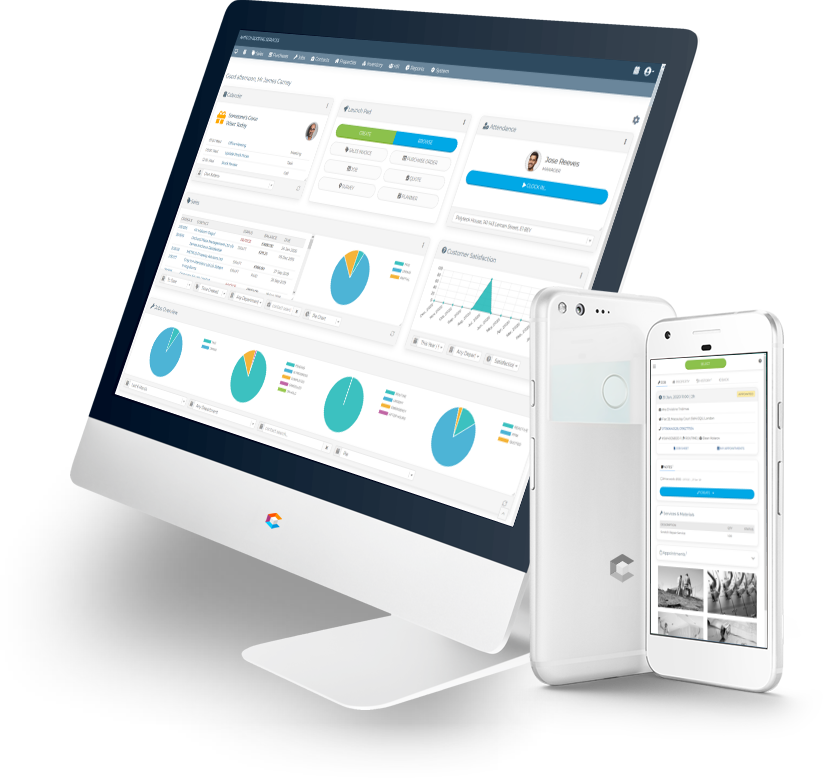Retail & E-commerce
Enhancing Retail and E-commerce management with Nettbooks
In the fast-paced world of retail and e-commerce, businesses must navigate complex operations while striving to meet customer expectations and stay ahead of the competition. Enterprise Resource Planning (ERP) software like Nettbooks, offers a comprehensive solution to these challenges by integrating various business processes into a unified system.
The Role of Nettbooks in Retail and E-commerce
Nettbooks software is designed to streamline and automate multiple business functions, providing real-time data and insights that enhance decision-making and operational efficiency. For retail and e-commerce businesses, an ERP like Nettbooks can significantly improve inventory management, order processing, customer service, and overall business performance.
Key Features of ERP Software for Retail and E-commerce Businesses
Inventory Management: Effective inventory management is crucial for retail and e-commerce businesses dealing with a wide range of products. An ERP system automates inventory tracking, ensuring accurate stock levels, reducing the risk of overstocking or stockouts, and optimizing warehouse management. This leads to improved stock control and reduced carrying costs.
Order Management: Managing customer orders from initial placement to final delivery can be complex. ERP software streamlines this process by providing a centralized platform for order tracking, processing, and fulfillment. This ensures timely and accurate order fulfillment, enhancing customer satisfaction and reducing operational costs.
Customer Relationship Management (CRM): Building and maintaining strong customer relationships is essential for long-term success. ERP software with integrated CRM capabilities allows businesses to track customer interactions, manage inquiries and complaints, and personalize communication. This helps in providing a tailored customer experience, fostering loyalty, and encouraging repeat business.
Financial Management: Accurate financial management is vital for profitability and compliance. ERP systems offer robust financial modules that handle accounting, budgeting, billing, and financial reporting. By automating these processes, businesses can reduce errors, improve financial visibility, and ensure compliance with industry regulations.
Sales and Marketing: ERP software provides tools to manage sales campaigns, track performance, and analyze customer behavior. This enables businesses to optimize their marketing strategies, target the right audience, and improve sales conversion rates. Integrated analytics also provide insights into sales trends and customer preferences.
Multi-channel Management: For e-commerce businesses, managing multiple sales channels (e.g., online stores, marketplaces, and brick-and-mortar shops) can be challenging. ERP software consolidates data from all channels into a single system, providing a unified view of sales, inventory, and customer interactions. This ensures consistency and efficiency across all platforms.
Supply Chain Management: An efficient supply chain is crucial for timely product delivery. ERP systems provide tools for managing supplier relationships, tracking shipments, and optimizing procurement processes. This helps in reducing lead times, minimizing costs, and ensuring a reliable supply chain.
Analytics and Reporting: Data-driven decision-making is essential in today’s competitive landscape. ERP software provides powerful analytics and reporting tools that offer insights into various aspects of the business. From sales performance to inventory turnover rates, these insights enable businesses to make informed decisions, optimize operations, and identify growth opportunities.
Benefits of Implementing ERP Software
Increased Efficiency: By automating routine tasks and integrating various business processes, ERP software significantly boosts operational efficiency. This allows employees to focus on more strategic activities, improving overall productivity.
Enhanced Accuracy: Manual data entry and fragmented systems are prone to errors. ERP software minimizes these errors by providing a single source of truth, ensuring data accuracy and consistency across the organization.
Improved Customer Service: With real-time access to customer information, order status, and inventory levels, businesses can respond more quickly to customer inquiries and provide accurate updates. This enhances the customer experience and builds trust.
Scalability: As businesses grow, their operational needs become more complex. ERP software is scalable, allowing businesses to add new modules and functionalities as needed. This ensures that the system can grow with the business, supporting expansion and diversification.
Cost Savings: By streamlining operations and improving efficiency, ERP software can lead to significant cost savings. Reduced errors, optimized inventory levels, and improved process efficiency all contribute to lower operational costs and higher profitability.
Regulatory Compliance: Staying compliant with industry regulations is essential to avoid penalties and legal issues. ERP software helps businesses adhere to regulatory requirements by providing tools for accurate record-keeping, reporting, and auditing.
Choosing the Right ERP Solution
Selecting the right ERP solution is crucial for maximizing its benefits. Businesses should consider factors such as industry-specific features, ease of use, scalability, and vendor support. Additionally, involving key stakeholders in the selection process and conducting thorough needs assessments can ensure that the chosen ERP system aligns with the business’s goals and requirements.
In the retail and e-commerce industry, Nettbooks cloud-based software is a transformative tool. By streamlining operations, improving accuracy, and providing valuable insights, ERP systems enable businesses to enhance efficiency, boost customer satisfaction, and drive growth.
As technology continues to evolve, businesses that leverage Nettbooks software will be well-positioned to stay ahead of the competition and achieve long-term success.

